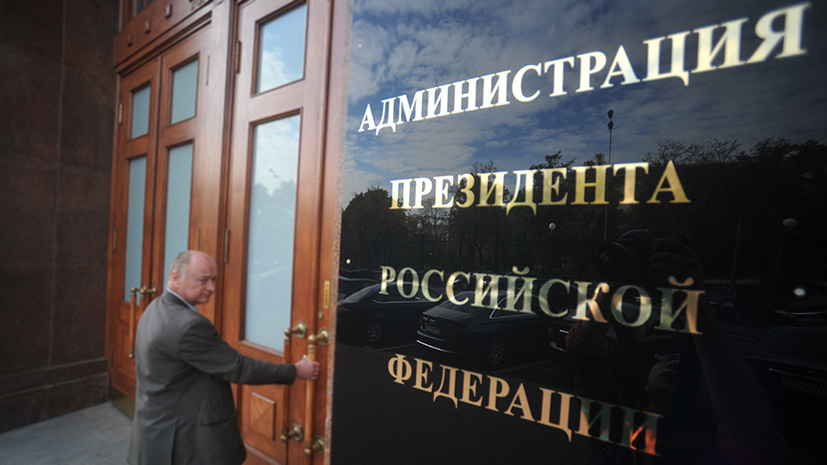Vladislav Surkov relieved of his post of assistant to the president of Russia. The Kremlin’s press service reports that the head of state has signed a decree.
“To dismiss Surkov Vladislav Yuryevich from the post of Assistant to the President of the Russian Federation,” the document reads. The decree comes into force from the day of signing.
Note that information about the upcoming resignation of Surkov appeared at the end of January 2020, but at that time no confirmation was published in this regard.
In particular, the director of the Center for Political Conjuncture, Alexei Chesnakov, announced Surkov’s resignation. According to him, this decision is connected "with a change of course in the Ukrainian direction."
“Over the next month he will be engaged in meditation. After that, he promised to report on the reasons for his decision and future plans, ”Chesnakov wrote in his Telegram channel at the end of January 2020.
As Chesnakov later explained, Surkov personally told him about his decision. He also stressed that "the decision has been made and will not change."
However, the Kremlin refuted the words of a political scientist about "a change in course in Ukraine."
“The only thing I can say is that any words about the change in the course in Ukraine do not correspond to reality and reflect only the personal point of view of those who speak about it,” said presidential spokesman Dmitry Peskov.
- © Alexander Utkin / RIA News
Biography
Surkov was born on September 21, 1964. He spent his early childhood in the Chechen-Ingush Soviet Republic, as his mother, Zoya Surkova, was allocated by assignment to work as a teacher in the village of Duba-Yurt. His father is Yuri Dudaev, an elementary school teacher with whom Zoya Surkova met at school.
Later they moved to Grozny. After some time, Dudaev left the family, after which Zoya Surkova and her son moved to the Lipetsk region. School years Vladislav passed in the city of Skopin, Ryazan region. He graduated from Moscow International University and holds a master's degree in economics.
Surkov came to work in the Kremlin in 1999. Then he became an assistant to the head of the presidential administration. Prior to that, Surkov led several organizations, including holding senior positions at Menatep Bank, Rosprom CJSC, Alfa Bank and was the first Deputy General Director of Public Russian Television OJSC.
In August 1999, he became deputy head of the presidential administration, and in 2004 became an assistant to the head of state.
In 2005-2006 he formulated the concept of "Sovereign Democracy" as applied to Russia. According to her, the Russian Federation can pursue its own policy, independent of other centers of power, while defending the freedoms and rights of Russians.
“It is permissible to define sovereign democracy as a way of political life in a society in which the authorities, their bodies and actions are selected, formed and directed exclusively by the Russian nation in all its diversity and integrity in order to achieve material well-being, freedom and justice by all citizens, social groups and peoples, its generators, ”Surkov wrote.
From 2011 to 2013, he was deputy prime minister, and from 2012, he was also the head of the apparatus of the Russian government. However, in 2013, he left this post of his own free will and became an assistant to the president.
Surkov worked under the administrations of three Russian presidents - Boris Yeltsin, Vladimir Putin and Dmitry Medvedev.
Activities
In recent years, Surkov has dealt with issues related to Ukraine and international cooperation to resolve the conflict in the Donbass. So, as an adviser to the president, he participated in negotiations in the Norman format (Russia, Ukraine, France and Germany) at the expert level and in dialogue in Minsk.
He also dealt with issues related to Transcaucasia. In the midst of the political crisis in Abkhazia on January 12 this year, when the opposition demanded the resignation of President Raul Khadjimba, Surkov arrived in the republic and held talks with the head of state. Subsequently, Khajimba resigned from his post.
The opposition leader Aslan Bzhania then praised the role of Russia in resolving the crisis, including noting Surkov’s visit and the visit of Deputy Secretary of the Security Council of the Russian Federation Rashid Nurgaliev a few days earlier.
“I would like to note the special role of the Russian Federation. Nurgaliyev and Surkov provided special assistance in resolving the crisis, ”Bzhania said.
Awards
Surkov received several awards for his public service. The first, thanks to the president, was received by him in 2003 for his active participation in the preparation of the message of the head of state to the Federal Assembly.
In the same year, he received the Order “For Merit to the Fatherland”, III degree, with the wording “for his great contribution to strengthening Russian statehood and many years of conscientious work.”
The Central Election Commission also noted it - in 2008, the department awarded him with an honorary diploma for helping to conduct the presidential elections, and in 2012 an honorary sign for his contribution to the development of the Russian electoral system.
In 2011, Surkov received the Stolypin medal, in 2012 the Order of Honor, in 2015 - “Alexander Nevsky”, and a year later - “For fidelity to duty” of the Republic of Crimea.

